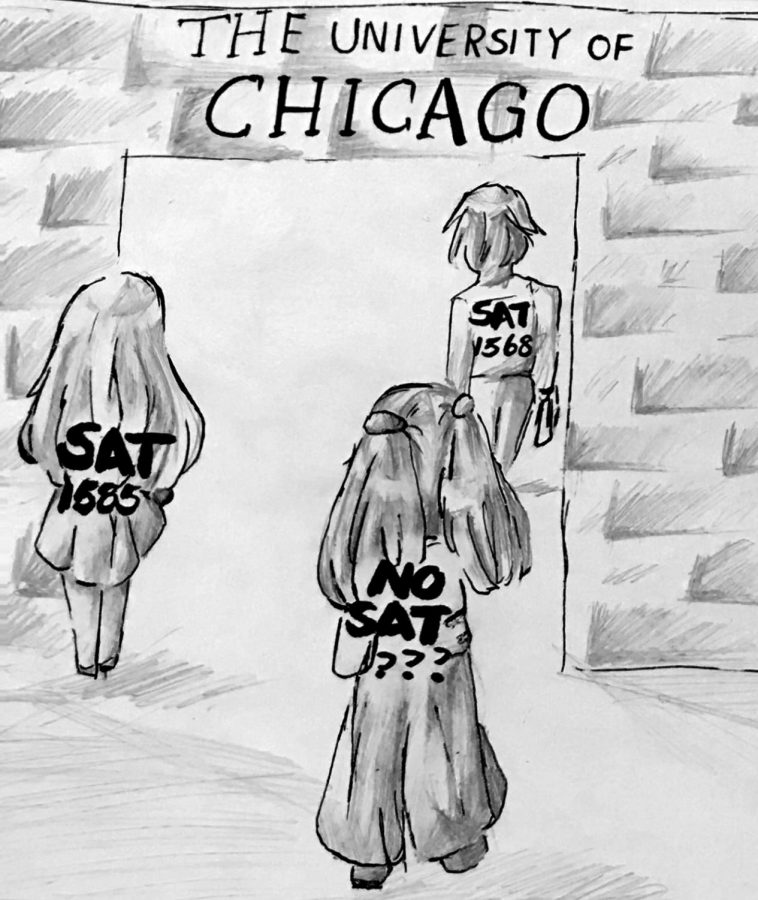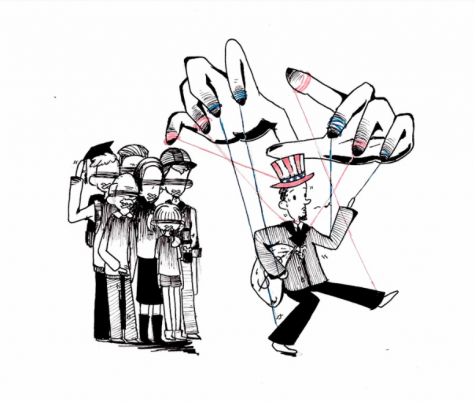SAT-Optional Admissions Will Fail the Test
Last July, the University of Chicago announced that it would be enacting the UChicago Empower Initiative, a test-optional admissions policy mainly intended to serve underserved applicants. This change reflects a growing trend, inaugurated in the late sixties, for colleges to consider ‘the whole student.’
In lieu of a standardized test, UChicago suggests submitting “creative writing projects, highlights from music/dance/visual art/theater performance…research projects, business plans, on-line accomplishments such as achievements on Khan Academy, or other work of note.”
At face value this change makes perfect sense: many of the students for whom the policy is designed simply cannot afford the SAT/American College Test (ACT) preparation courses offered by companies like Kaplan or The Princeton Review. Kaplan offers group courses for $899 and a personalized one-on-one tutor which costs a whopping $2,599.
What UChicago apparently does not take into account is that Khan Academy, in affiliation with the College Board, offers the ‘Official SAT Practice’ course. In the course a student will find eight full-length practice tests, model problems that address over 75 skills tested in the Reading-and-Writing and Math sections, videos on test-taking strategies, and even an automated grader for the optional essay. The program is completely free, and, what’s more, it works: after 20 hours of practice, the average student sees a 115 point increase without spending a single penny.
Additionally, the ACT has its own free online test-prep service, ACT Academy, as well. While UChicago’s new policies attempt to level the playing-field, it seems that the field has been leveled already.
Another reason colleges like UChicago have made this change is that they believe these tests don’t accurately represent the student, and they are right to some extent. Lower scores could indicate that a student didn’t prepare well enough, either by choice or by circumstance, or suffers from a learning disability.
A high score may not necessarily mean that the student is inherently smarter, but rather that he simply prepared more. And while these concerns are valid, I still believe that standardized tests can reflect a student’s abilities.
If a score reveals how much a student prepared, then it also demonstrates the likely work ethic the student will have in college. Furthermore, students with learning disorders are often given extra-time on the tests, and almost everyone has access to free, online test-prep services. Of course, these tests often are not – nor ever will be – a perfect snapshot of a student, but they come pretty close.
A test-optional policy removes some of the objectivity of the college application process because it dispatches a central element of comparison between applicants. After all, it is not easy to compare one student’s dance performance to another’s business plan.
If there are few benefits and many downsides to a test optional process, why is UChicago allowing students not to submit test scores? For one thing, if applicants with low test scores don’t submit them, UChicago’s average SAT score for admitted students will increase. Could this change in policy be an attempt to gain in the US News & World Reports rankings? I suspect so.
In the end, college admission has never been perfect, but a test-optional policy only serves to muddy the waters. Perhaps one day we will be blessed with the solution to college admissions, but for now, we can only make do with what we have: flawed but workable standardized testing.













